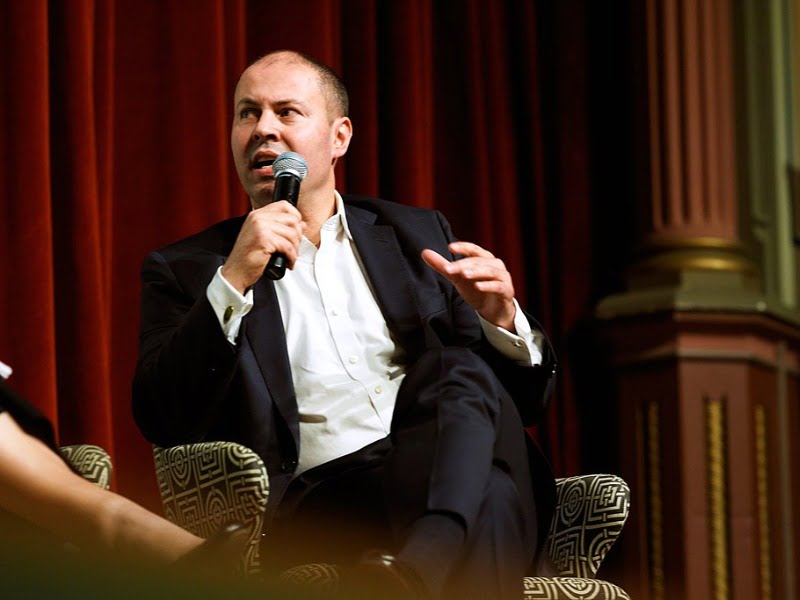The federal government has acknowledged its trouble-plagued robodebt scheme is an “unquantifiable risk” to its coffers and announced a range of new tech-focused projects as part of the Mid-Year Economic and Fiscal Outlook (MYEFO).
Treasurer Josh Frydenberg released the MYEFO on Monday morning, with new initiatives including a platform for gig economy data-sharing, funding for university-industry collaborations and support for drone management.
It also acknowledged its highly controversial robodebt scheme as an “unquantifiable risk” after admitting that many of the debts may have been raised incorrectly, with a review to determine exactly how many would need to be paid back.

“Current and former income support recipients who have had an income compliance review, where a debt has been determined and this is based solely on averaging of ATO income data, are being identified,” it said.
“A subset of debts which have been raised to date under the program are in-scope for reassessment. The effect on the identified debt, total value and return or recovery will not be quantifiable until reassessments are completed.”
A new third-party reporting regime is set to be launched, with gig economy companies having to report on identification and income information of their users to the Australian Taxation Office for data-matching purposes.
The new scheme, to cost $14.6 million in terms of the underlying cash balance over the forward estimates, would apply to ridesharing companies like Uber and accommodation platforms like Airbnb from July 2022, and other gig economy companies from the following year.
“Once reporting by platforms begins, the measure is expected to result in increased self-reporting of currently unreported income by sellers. It will also assist the ATO to identify under-reporting of sharing economy income or non-lodgement and take corrective action where necessary,” MYEFO said.
With the imminent launch of open banking next year, the Coalition is to provide more funding to the ACCC to continue the development of the Consumer Data Right, with more testing and assurance activities with the big four banks. But the cost of this has not been revealed as negotiations haven’t been finalised.
Nearly $10 million is to be provided to a range of university and private sector collaborations in an effort to address Australia’s commercialisation woes.
As part of the package, the University of Wollongong will receive $2 million to establish an Industry 4.0 Hub in Nowra, Deakin University will get $2 million to establish a hydrogen fuel cell and supply chain pilot program in Warrnambool, and Flinders University will deliver an advanced apprenticeship diploma to upskill employees in digital technologies with $2 million.
MYEFO also featured a focus on skills and training, with $18.3 million over four years going towards the final phase of the Jobs and Education Data Infrastructure project, which will see the establishment of a data tool prototype to help employers identify the skills that employees will need in the future.
The Online Employment Services Trial will also be expanded with $3.6 million in funding, with an aim to offer digital employment services to an additional 33,750 participants.
A new National Data Report on girl’s and women’s participation in STEM subjects and jobs will be funded for the next decade with $2.7 million as part of wider efforts to improve gender diversity in the sector.
A number of larger big ticket items previously announced by the Coalition have also been confirmed in MYEFO, including a $152.7 million cybersecurity resilience and workforce package.
The program establishes new cybersecurity positions within government and the Australian Defence Force, a range of scholarships and training opportunities, and targeted assistance for small businesses.
Australia’s national security agencies get a further $107.4 million, with a new Counter Foreign Interference Taskforce to be established with $87.8 million of the funds.
The taskforce, comprising members of Home Affairs, ASIO, the AFP, ASD and AUSTRAC, will “strengthen the ability to disrupt and deter foreign attempts to undermine national interests”.
MYEFO also outlined $156.2 million in deregulation efforts, including $60.6 million for the creation of a “single, accessible and trusted source of business data” and $29.2 million over four years for a digital export certification management scheme.
A further $36.3 million in this financial year has been allocated for “essential health and aged care payments system maintenance” to ensure the government “continues to “own and operate the CIT systems that deliver Medicare, the Pharmaceuticals Benefits Scheme, Aged care and related payments into the future”.
The 30-year-old Medicare payments system had been slated to be replaced with an off-the-shelf solution last year but this was later abandoned.
MYEFO also put a number on the amount of money to be spent on a review of the Privacy Act to be conducted in response to the ACCC’s inquiry into digital platforms, with $1.7 million going towards this over two years.
The Civil Aviation Safety Authority will be provided with $12 million in this financial year to manage the regulation and associated compliance of commercial drones as part of the MYEFO update.
Do you know more? Contact James Riley via Email.

